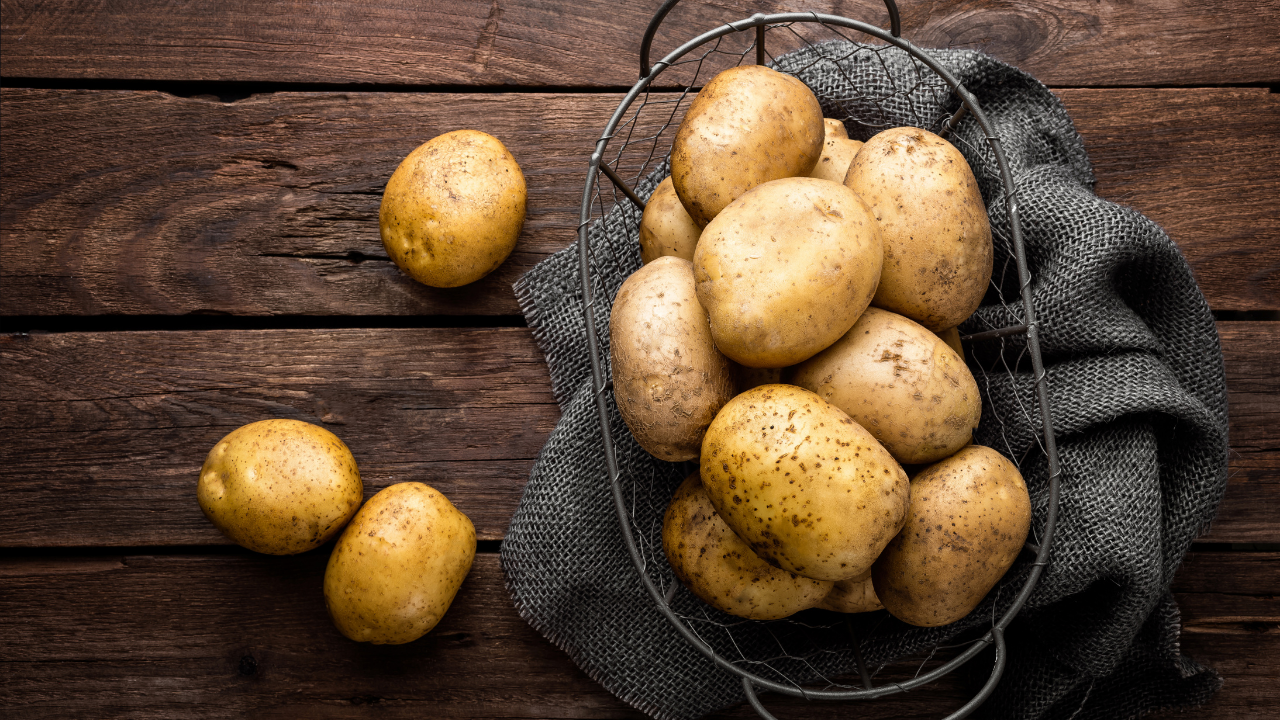Episode 122: Starch... Superfood or Super Villain?

Listen In
Summary
When you hear the word starch, what do you think of? Pasta, bread, white rice? Weight gain? Blood sugar spikes?
Starch has gotten a bad rap, and in some instances for good reason. The starch in processed carbs breaks down into glucose and does spike blood sugar and contributes to diseases like diabetes and obesity.
But just like not all carbs are created equal, not all starch is created equal.
Resistant starch is starch that acts like soluble fiber in that it isn't digested in the small intestine by you (it is resistant to digestion, hence the name).
Instead, it's digested by the bacteria in your large intestine which produce beneficial byproducts like SCFA's that give you a host of health benefits:
- Prevent cancer by influencing the genes that control cell proliferation and modulating the immune system
- Reduce cholesterol
- Speed your metabolism
- Reduce inflammation
- Repair leaky gut by increasing tight-junction proteins
- Reduce the release of bacterial endotoxins
- Increase gut motility
- Provide the main source of energy for your colon
- Correct gut dysbiosis
- Cool off an over-active immune system
- Inhibit 3 of the most powerful inflammatory signals in the body: NF KappaBeta, IFN-Gamma, and TNF-Alpha.
- Reduce gut inflammatory markers
- Make immune cells more tolerant to your food, helping prevent food allergies and sensitivities
- Prevent autoimmune disease
Because of the way it's processed in the body, it doesn't spike your blood sugar and actually helps to balance your blood sugar and improve insulin sensitivity.
What foods have the highest amounts of resistant starch?
Oats (cooked, then cooled), brown rice (cooked, then cooled), beans and legumes (which should be soaked and cooked a bit longer to remove lectins), potato starch (you only need 1-2 tbsp per day and you don't want to heat it), potatoes (cooked and cooled), and green bananas.
Why do you need to cook and cool your food? Because of a process called retrogradation. Basically when you heat certain starches they lose their original structure, and upon cooling, form a new structure that becomes resistant to digestion.
A note about increasing resistant starches in your diet:
You want to start slow. Increasing your resistant starch intake can cause gas because it can feed both good and bad bugs in your gut.
Slowly increase your consumption over time, and then as the good bugs strengthen and grow, they'll begin to outnumber the bad bugs and the digestive discomfort should subside.
If you continue to have issues with digesting resistant starches, it may be a sign you have sibo (small intestine bacterial overgrowth), and need to follow a sibo protocol to kill off the bad bugs before your gut is ready for more resistant starch.
------------------------------------
Let's Chat!
If you're loving these episodes, you'll love the customized advice you'll get on a free 'Kickstart Your Weight Loss' call with me! Click here to schedule yours now 😉
Hot News & Deals!
Click here to book a complimentary consultation if you want to lose weight and keep it off without restrictive dieting!
Ready to say goodbye to stubborn weight, uncontrollable cravings, emotional eating, and tummy 'fluff'? Click here to get on the waitlist for Follow Your Gut!!
Can't get enough health and fitness inspo?
Follow me on Instagram, TikTok, or join my #badasswarrior tribe in my free Facebook group!
Want to be reminded when a new episode airs? Click here to subscribe for reminders!
Your daily discount!
Click here to get 15% off your first Fre Skincare Set! It's designed for skin that sweats.
The owner of this website may receive compensation for recommendations made in reference to the products or services on this website. This compensation may be in the form of money, services, or complimentary products and could exist without any action from a website visitor. Should you purchase a product or service that was recommended by this website, it is understood that some form of compensation might be made to the website owner. For example, if you click on an affiliate link at this website and then make a purchase of the recommended product or service, the website owner may receive compensation.
The information shared in this blog and podcast are intended for informational purposes only. They are not meant to diagnose, treat, or cure any health conditions and you should always consult your healthcare provider before making any changes to your diet or exercise routine.
